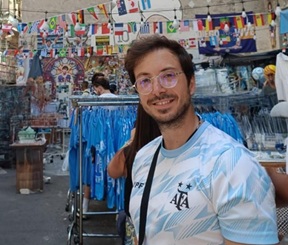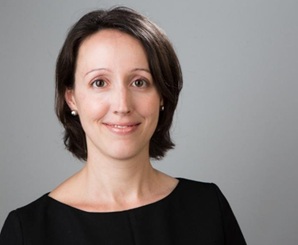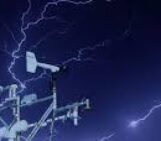The Geoscience Instrumentation and Data Systems (GI) Division of the EGU is opening its 2025 Campfire series with an event dedicated to Artificial Intelligence (AI). The Campfire will take place on Thursday, 30 October 2025 at 16:00 CET and will be coordinated by the Early Career Scientists (ECS) team of the GI Division.
Campfires are designed to bring researchers together to learn, discuss, and network around current scientific topics. They are not only about presentations but also about building connections within the geoscience community. The upcoming Campfire on AI is particularly relevant, as artificial intelligence is rapidly transforming the way we conduct research, interpret data, and make decisions in geoscience instrumentation and data systems.
This first Campfire of 2025 offers two complementary perspectives on AI: the importance of synthetic data for advancing seismic geophysics, and the role of international standards in ensuring that AI applications in disaster management are trustworthy and responsible.
Why talk about AI in Geoscience, and why now?
In the last decade, AI has become increasingly present in geosciences. From automated satellite image interpretation to the prediction of natural hazards, AI tools are providing new ways of working with complex and incomplete data. For many geoscientists, the challenge is not only adopting these tools but also understanding their limitations, ensuring their reliability, and applying them responsibly in societal contexts.
Synthetic data generation and the creation of international standards may seem like very different topics, but in fact they illustrate two essential dimensions of AI: innovation and responsibility. On the one hand, generating realistic datasets enables AI models to overcome limitations in data collection, opening new possibilities for research. On the other, ensuring that AI applications are developed and used responsibly requires coordination, shared principles, and global collaboration.
With these themes at the center, the Campfire will bring together two speakers who represent this dual mission: advancing scientific innovation while building frameworks for responsible application.
Speakers Information
Ivan Deiana, PhD Student in Geophysics at Stanford University – SEP
Talk Title: The Importance of Synthetic Data for Machine Learning in Geophysics: A Seismic Low-Frequency Extrapolation Case Study
Ivan Deiana is a PhD student in Geophysics at Stanford University, where he works in the Stanford Earth Imaging Project (SEP). His research lies at the intersection of physics-based methods and machine learning (ML), with a focus on seismic imaging and inverse problems. Before joining Stanford, Ivan studied in Argentina and Italy, contributing to projects on signal processing and geophysical data analysis. His academic trajectory reflects a strong interest in building bridges across disciplines, and today his work seeks to advance methodologies that address energy and environmental challenges.
In this Campfire, Ivan will address a common challenge in geophysics: the lack of complete or accessible seismic datasets. In particular, low-frequency information is often missing, yet it is fundamental for constructing accurate subsurface models. Without these models, both resource exploration and hazard assessment can be severely limited. Collecting such data in the field is costly and, in some cases, impossible.
This is where synthetic data play a crucial role. By combining physical knowledge with efficient modeling strategies, it is possible to generate statistically representative examples that guide extrapolation and strengthen full waveform inversion (FWI). Ivan will demonstrate how synthetic data can fill key gaps, enhancing the reliability and versatility of AI-based approaches.
According to Ivan, AI has already transformed the way he approaches research:
“AI has become an important part of my work, helping me explore new ways to handle seismic data that would be difficult, or much more time-consuming, to address with traditional tools. It encourages me to combine physics, domain expertise, data, and computation in more flexible ways.”
Looking ahead, he anticipates a growing role for AI in research and education:
“AI can connect disciplines and make scientific tools more accessible. Nevertheless, without domain expertise it can be risky, leading to wrong conclusions or misguided decisions. The challenge is to guide AI so it complements human knowledge rather than oversimplifying it.”
His contribution will show how innovation in data generation can directly support scientific discovery, making AI more robust and useful in geoscience.
Dr. Monique Kuglitsch, Innovation Manager at Fraunhofer Heinrich Hertz Institute (HHI)
Talk Title: International Standards for Responsible AI in Disaster Management
While innovation pushes AI forward, ensuring its responsible use requires another type of work: coordination and standardization. Monique Kuglitsch, Innovation Manager at Fraunhofer HHI, brings this essential perspective to the Campfire. Her career has crossed multiple disciplines and countries, combining physical geography, climate sciences, and applied telecommunications research.
Monique studied French Literature and Physical Geography at Queen’s University (Canada), pursued a Master’s degree at the University of Toronto, and completed her Doctorate at the University of Bern, where she reconstructed past summer temperatures and floods using alpine lake sediments. Currently, at HHI, her work focuses on bridging research with standardization, exploring how cutting-edge technologies, including AI, can be applied to address challenges in geoscience.
Her involvement in international initiatives is extensive. Since 2020, she has worked in standards development at the International Telecommunication Union (ITU), contributing to groups such as the ITU/WMO/UNEP Focus Group on AI for Natural Disaster Management and its successor, the ITU/WMO/UNEP/UNFCCC/UPU/UNESCO Global Initiative on Resilience to Natural Hazards through AI Solutions. She also participates in the European project MedEWSa, which integrates novel AI and ML methods into early warning systems for natural hazards.
In her talk, Monique will emphasize the importance of building international standards for AI applications in disaster management. Standards provide a foundation of trust, safety, and interoperability. Without them, the risk of inconsistent, unreliable, or even harmful applications increases. Drawing on her experiences in this field, she will demonstrate how collaboration between researchers, policymakers, and international organizations can guide AI development in ways that maximize benefits while minimizing risks.
As she notes, AI combines both promise and challenges:
“AI can offer many possibilities, but also many risks. However, we are not helpless and can directly contribute to the direction that international standards (and therefore policy) take.”
Her message is clear: researchers and professionals have a role not only in using AI but also in shaping the frameworks that govern its application.
Looking to the Future
Taken together, the talks by Ivan Deiana and Monique Kuglitsch present two sides of the same coin. AI in geoscience requires both technical innovation and responsible governance. Synthetic data expands the possibilities of research, while international standards ensure that these advances can be applied safely and equitably in real-world contexts.
This Campfire provides participants with the opportunity not only to learn from these perspectives but also to engage in dialogue. The event will conclude with a Q&A session and networking time, where attendees can exchange ideas and experiences with the speakers and other members of the GI community.
Event Details
When: Thursday, 30 October 2025 – 16:00 CET
Where: Online (registration required)
Who: Open to all interested in AI and geoscience
Register here: https://www.egu.eu/webinars/598/gi-campfire-artificial-intelligence/
We look forward to welcoming you to the first GI Campfire of 2025. It will be an opportunity to explore how artificial intelligence is shaping the future of geoscience, balancing innovation with responsibility.



